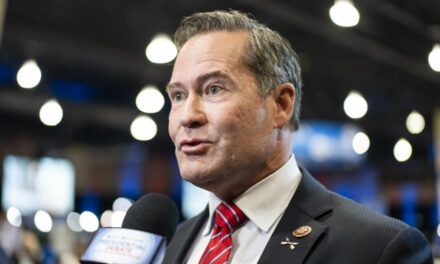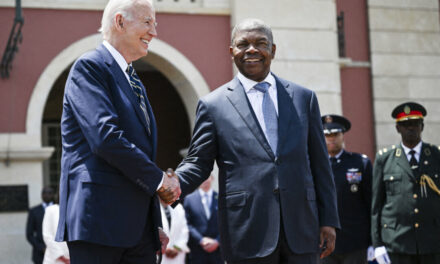We support our Publishers and Content Creators. You can view this story on their website by CLICKING HERE.
The president-elect urged the United States to stay out of Syria’s conflict as opposition forces threaten President Bashar al-Assad’s regime and Russia.
President-elect Donald Trump said on Saturday that the United States should avoid involvement in the conflict in Syria, where opposition forces are challenging President Bashar al-Assad’s rule as front lines have collapsed across the country amid battles for control of key cities.
Calling Syria a “mess” and “not our friend,” Trump said America should avoid any involvement in the conflict.
The president-elect said that opposition fighters have already reached the suburbs of the Syrian capital Damascus and are getting ready to make “a very big move toward taking out Assad.”
The collapse of Assad’s regime could spell a strategic defeat for Russia, which for years has been a significant backer of Assad’s regime and has a key naval and air base in Syria.
Trump said Russia is so tied up in Ukraine that it is incapable of offering decisive assistance to stop the advance of anti-government forces, led by terrorist group Hayat Tahrir al-Sham group (HTS).
“Now they are, like possibly Assad himself, being forced out, and it may actually be the best thing that can happen to them,” Trump wrote. “There was never much of a benefit in Syria for Russia.”
The United States has about 900 troops in the opposition-held northeast of Syria, working with Syrian Kurdish allies to prevent any resurgence of the ISIS terror group.
Forces opposed to Assad have made swift and significant advances, battling for control of Homs on Saturday and starting to encroach on Damascus. Losing Homs would be a crippling blow to Syrian government forces as the city lies along a key route connecting Damascus with Assad strongholds Latakia and Tartus on the coast.
Rami Abdurrahman, who heads the UK-based Syrian Observatory for Human Rights, an opposition war monitor, said that anti-government forces were active in the Damascus suburbs of Moadamiyah, Jaramana and Darayya, on Saturday. Other opposition combatants were marching towards Harasta, another Damascus suburb, he said.
Hassan Abdul-Ghani, an HTS commander, posted on Telegram that anti-Assad forces were encircling Damascus as part of the “final stage” of their assault.
Critical Threats, a project of the American Enterprise Institute, said “Assad faces an existential threat.”
In another post on X, Critical Threats noted that Russian forces on Saturday had not yet evacuated their naval base in Tartus.
HTS, which broke away from Al-Qaeda in 2016, has spent years trying to moderate its image on the international stage. The terror group presents itself as a viable alternative to Assad’s 54-year authoritarian rule.

 Conservative
Conservative  Search
Search Trending
Trending Current News
Current News 







